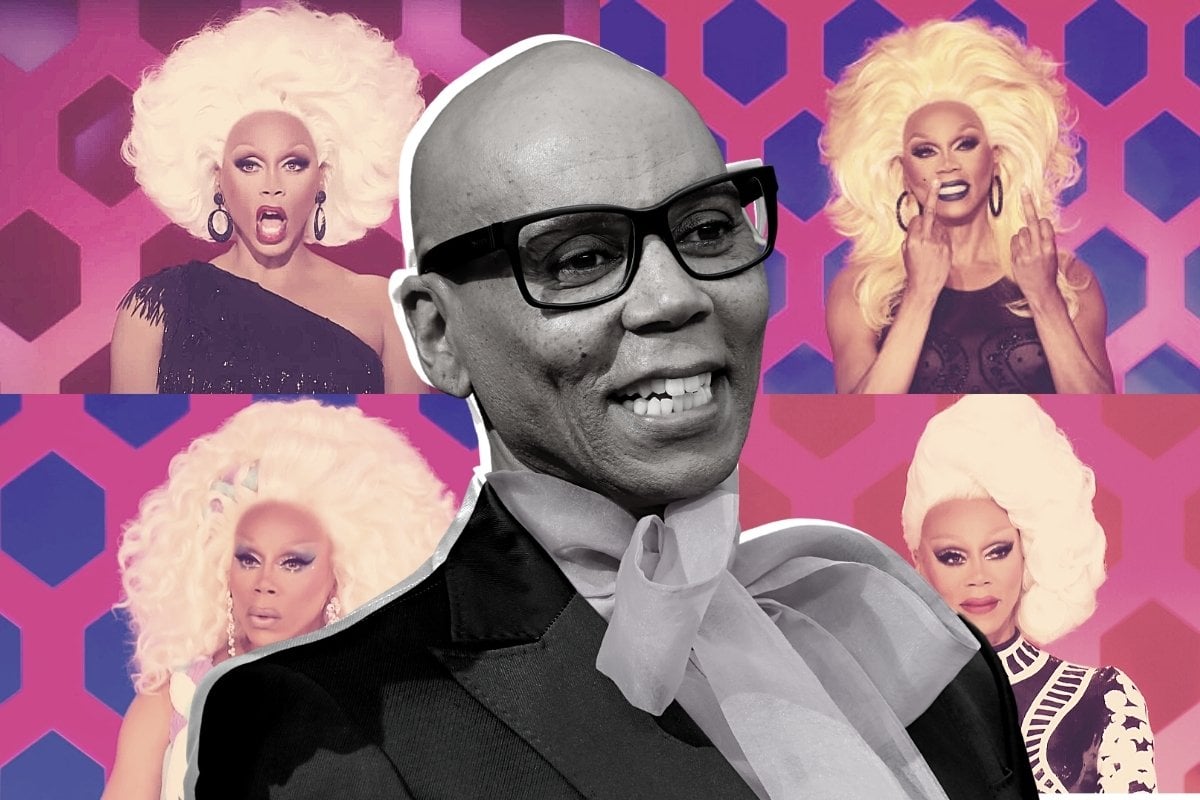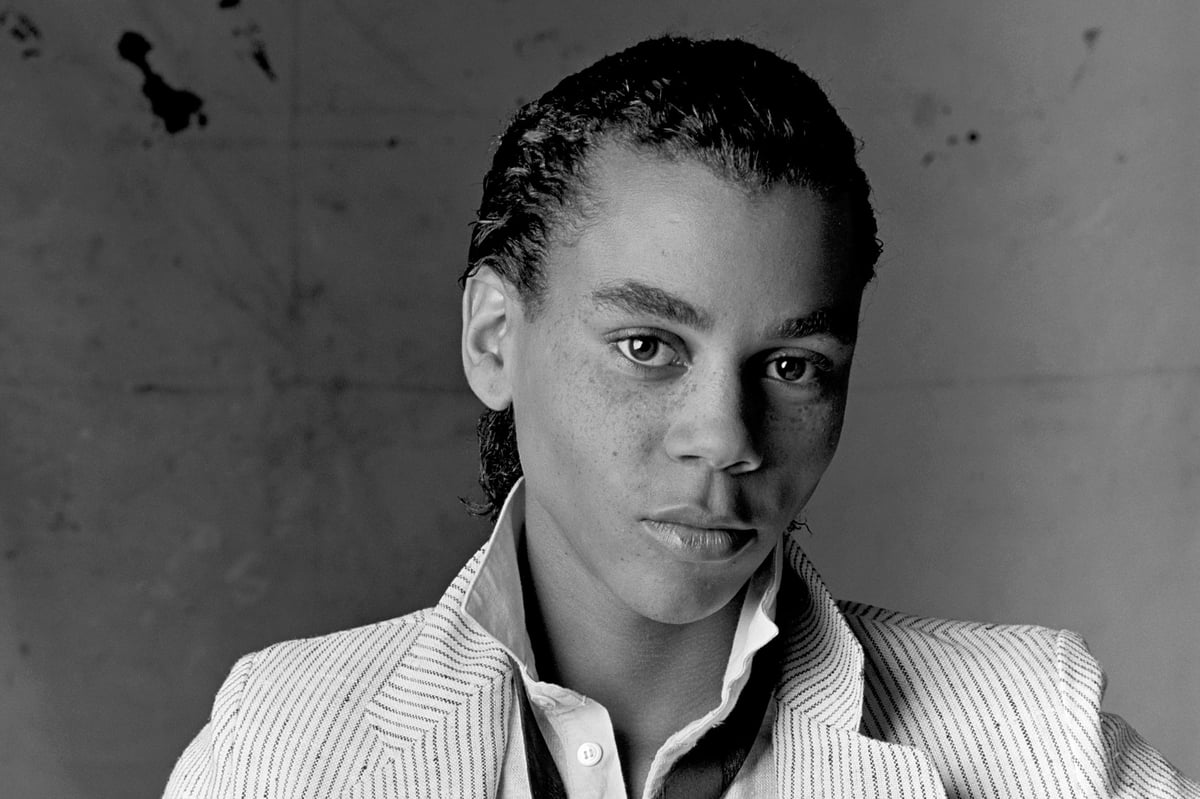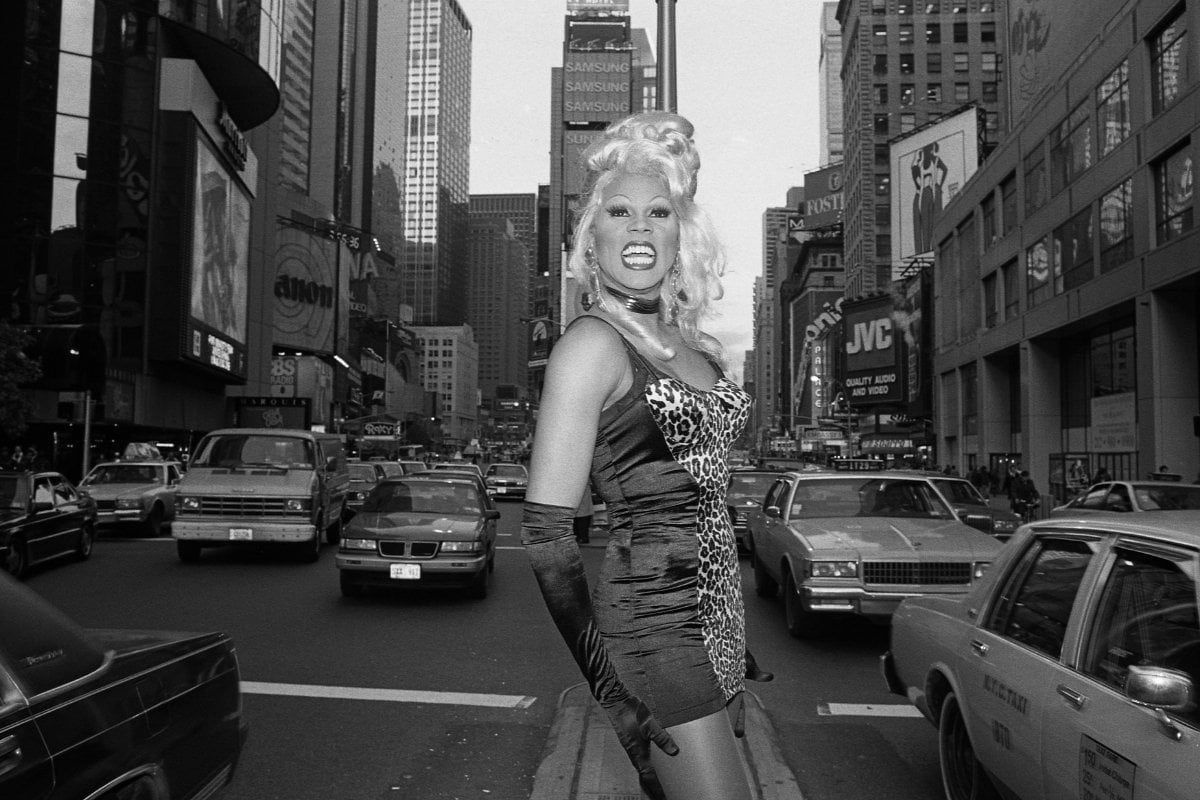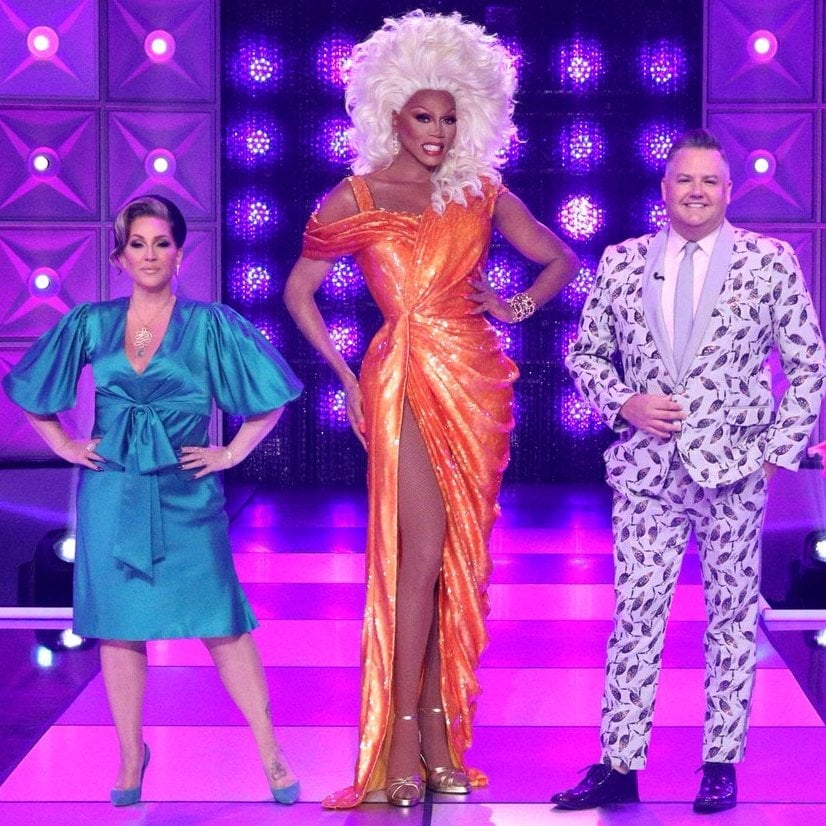
The first time the world glimpsed RuPaul Charles, he was reclining over the bonnet of a New York taxi in a platinum blond bouffant wig, posing for a mock fashion photoshoot.
It was the 1992 film clip for his breakthrough song, 'Supermodel'; a giant wink (through false lashes, of course) at our pervading obsession with that titular breed of fashion icon.
While we fawned over the likes of Linda Evangelista, Naomi Campbell and Cindy Crawford, there was a 1.93m man in heels and a cinched-in waist doing the very same thing that earned them millions.
This charade-busting camp performance proved to be star-making for RuPaul.
Nearly three decades on, he's not only the world's most famous drag queen, but he's also one of the most influential people in entertainment, and the creator of the most Emmy-awarded reality television series of all time, RuPaul's Drag Race.
He's a phenomenon as unlikely as they come.
 RuPaul at the age of 19. Image: Getty.
RuPaul at the age of 19. Image: Getty.




Top Comments